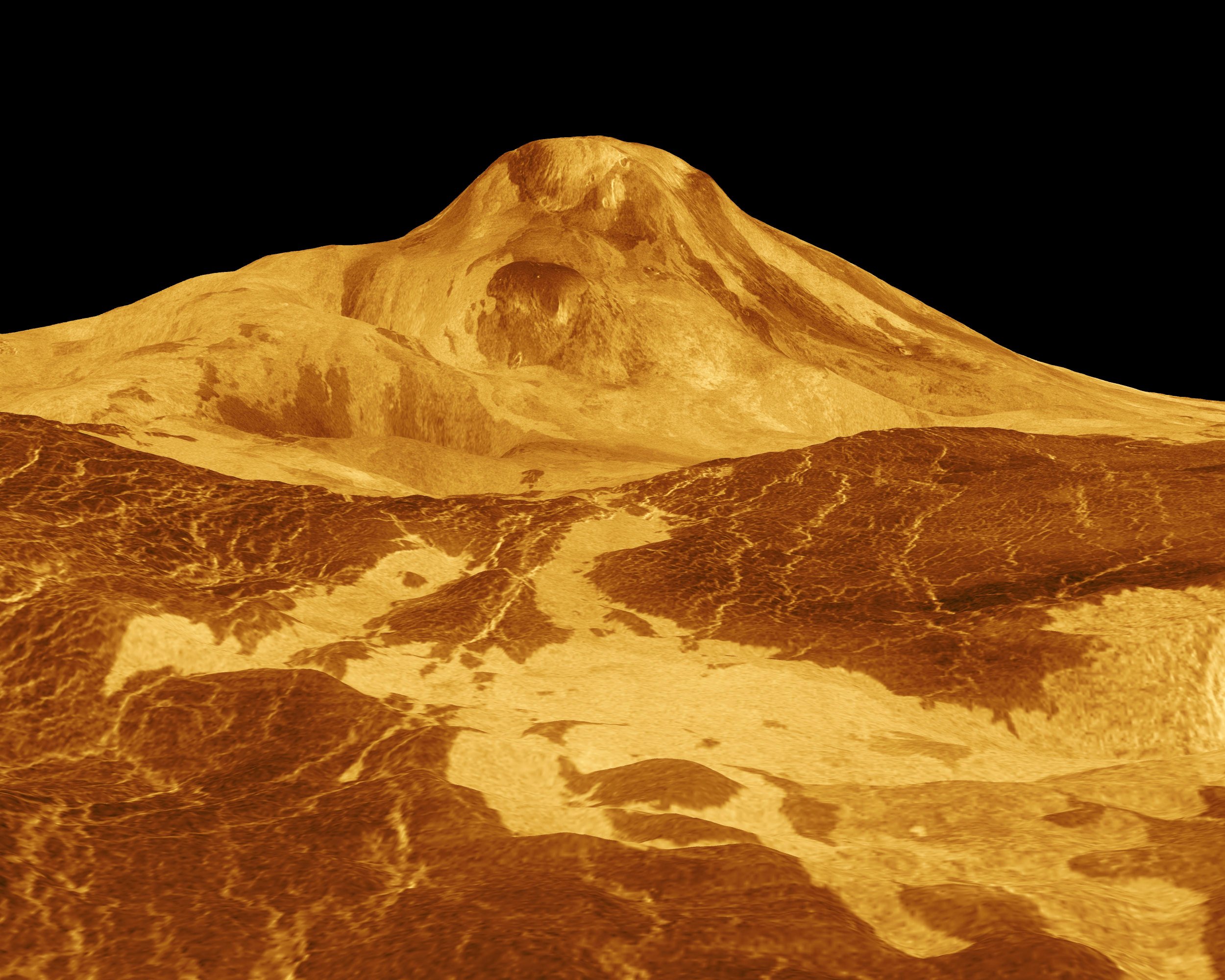
The internet is running wild with reports that the deceased Bulgarian woman known as the prophet Baba Vanga made two prophecies for 2018. One allegedly states that "a new form of energy" will be discovered on Venus. But Venus is sometimes nicknamed our sister planet, so what's the likelihood that there could be a whole new type of energy there waiting to be discovered and brought back for use here on Earth?
"Venus is a natural place to study because it's a planet much like our own," Paul Byrne, a planetary geologist at North Carolina State University who studies the surface of Venus, told Newsweek. The two planets are similar sizes, similar densities, and have similar gravities. And yet Venus is vastly different from Earth—it is broiling hot, its day is longer than its year, and its atmosphere is almost entirely carbon dioxide. So what gives?
Scientists are still trying to crack that question, Byrne said, but they're facing a huge challenge. "Venus is a fascinating planet," but the last time a spacecraft was able to gather any data from its surface was two decades ago. "We don't have new data."
That's in part simply a reflection of how terrifying Venus is: It's a difficult planet to get close to. The European Space Agency launched a spacecraft called Venus Express to study the planet's atmosphere in 2005, but that mission ended in 2014 when the ship used up all of its fuel. Similarly, the Japanese equivalent launched a mission called Akatsuki in 2010, but the spacecraft had an early error that forced it into about six years of scrambling to right itself.
And neither of those missions have attempted to see through Venus's thick, swirling clouds of carbon dioxide, which block most standard instruments for studying the surface. Scientists' best bet is radar, but that adds cost and complications. Visiting the attractively bare moon, Mars and Mercury is just an easier sell. NASA includes exploring Venus's surface on its list of priorities within our solar system and has discussed a potential lander mission with Russia, but there's nothing firm in the works.
Read more: Venus Is More Like Earth Than We Thought Despite Nightmare Atmosphere
That is a bummer, Byrne said, especially when we start thinking beyond our own solar system. Venus is an Earth-sized planet in the habitable zone, the sweet spot of an orbital distance where the surface temperature should theoretically allow liquid water to survive, of a very common type of star, he said. If we saw Venus from a few light-years away, we'd be thrilled—but here in our own backyard, we barely give it a second glance.
That means we don't know much about what's happening at the surface of Venus, much less whether there are any lessons we could take from it to apply to our energy woes. Scientists do know, however, that the surface of Venus is much younger than they expected: There are only about a thousand craters on the entire planet, the rest have been wiped away by lava flows or other types of surface changes. The best way to really understand what's happening there, Byrne said, would be to bring a sample back to Earth's laboratories—and that's not going to happen any time soon.
Uncommon Knowledge
Newsweek is committed to challenging conventional wisdom and finding connections in the search for common ground.
Newsweek is committed to challenging conventional wisdom and finding connections in the search for common ground.
About the writer
Meghan Bartels is a science journalist based in New York City who covers the science happening on the surface of ... Read more
To read how Newsweek uses AI as a newsroom tool, Click here.






